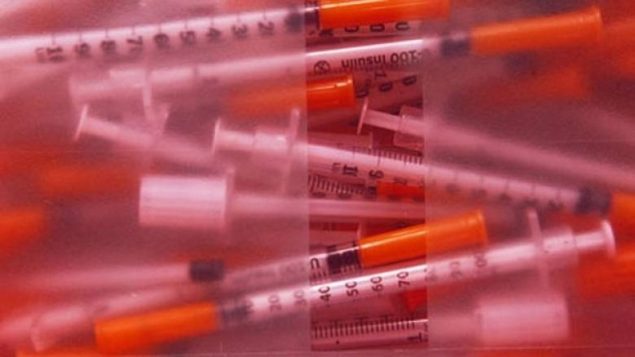Challenge wants government to provide clean needles for addicts
Both the law and the theory hold that drugs are illegal and not allowed in prison. In practice it’s a different story, and because of a scarcity of syringes in prison they are often re-used among inmates and can spread diseases.
With support of several HIV/Aids organisations, a former inmate, Steven Simons, has filed a Charter of Rights challenge in Ontario court saying the government should provide clean needles.
The suit alleges that the lack of clean syringes violates Charter obligations to and argues that the government has the legal obligation to protect the health of inmates.
The government and guards union says providing needles would condone an illicit practice, make prisons more dangerous, and the needles could be used as weapons.
There is a pilot programme in a handful of Canada’s 43 federal prisons, but the plaintiffs aregue that the programme deprives inmates of confidentiality and can be stigmatized for engaging in a forbidden practice through twice daily checkups on their “equipment”.

Aerial view of the Atlantic Institution, federal maximum security prison in Remous, N.B., for p to 331 male prisoners. This was one of the two sites initially selected in 2018 for a pilot needle exchange programme as it had one of the highest infection rates. (Google)
That programme is based on a similar prison programme fo inmates needing epipens and insulin injections.
Quoted by the Globe and Mail news in 2018, Jason Godin national president of the Union of Canadian Correctional Officers, expressed concern about the programme and potential policy change saying “What’s very concerning is that the whole goal as part of the rehabilitation process is to try to get these individuals to become law-abiding citizens and wean them off the drugs that usually got them into prison to begin with”. Referring to the pilot needle exchange programme he added that it seems the Correction service is closing its eyes to drug trafficking inside the institutions,
Because drugs remain illegal in prison, he says it puts guards in a confusing position of facilitating an illegal act on one hand, and being obliged to enforce it on the other by an obligation to confiscate drugs. The guards also claim that drugs increase the threat of overdosing.
The challenge to be heard today, was launched in 2012 after Simons was infected by hepatitis C, and potentially exposed to HIV whild sharing needles and with no access to sterile equipment during 12 years in prison.
According to the Correctional Service in 2018, infection rates for HIV are 200 times higher than the general population, while Hep-C rates are 250 times higher, although these have been declining over the past decade.
Additional information-sources







For reasons beyond our control, and for an undetermined period of time, our comment section is now closed. However, our social networks remain open to your contributions.